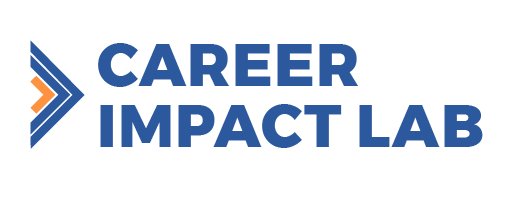Creating an effective CV is crucial for a successful job search.
A CV (Curriculum Vitae) is a personal marketing document used to sell yourself to prospective employers. It should tell them about you, your professional experience, your skills and competencies, and your achievements. Ultimately, it should highlight why you’re the best person for the job.
A CV is required when applying for a job. In addition to your CV, employers may also require a cover letter. Your CV is your ambassador to your prospective employer; don’t send a bad one. You can be a bright person yet carry a mediocre CV. That is why it is very important to learn how to write a winning CV. When it comes to job hunting, your CV is paramount. If you get it right with your CV, you will have an interview in no time, but if you get it wrong, you may face rejection after rejection.
While you may have a CV that can fit into any role, your CV must be tailored to meet the job requirements. For example, if you studied Business Management in your first degree and are applying for a job at an accounting firm, your CV must be tweaked to highlight your accounting skills. It does not mean you have to write a new CV; it means you have to let your competencies and experiences in accounting shine through the CV.
Your CV is not who you are, but it’s a powerful tool to showcase what you can do. Make it simple, make it memorable, make it yours.
― Steve Jobs

Before applying for a job, read the job requirements and the job descriptions and extract the key words. Then, make sure you deploy those key words when tweaking your CV. For instance, if words like innovative, resourceful, learner, leadership, creative, and detailed are the key words in the job descriptions, ensure you include these words in your CV when you are talking about your roles and achievements.
In this era where twenty thousand applicants are vying for an opening meant for three people, only a strong CV will get you an interview or even a job offer. There is also an Applicant Tracking System (ATS) that scans thousands of CVs and ranks them based on a set of pre-installed keywords. In order to increase your chances of being selected, you need to write an impressive CV that scales through the ATS software and catches the attention of the recruiter.
Important Components of a CV
- Contact Information:
- Include your full name, phone number, email address, Location and LinkedIn profile
- Ensure your contact details are up-to-date.
- Resume Summary:
- Write a brief, attention-grabbing summary of your resume (You can use ChatGPT to do this – Copy and paste your resume into the CHAPGPT and ask the AI to generate a resume summary for you based on your resume)
- Tailor it to the specific job you’re applying for.
- Core Competencies
- This is the section you talk about the skills/competencies you have that are consistent with your work experience, education and also relevant to the job you are applying for. For example, if you are applying for a role in Digital Marketing and you are a UI/UX designer, you have to highlight more of your skills in Digital Marketing and not UI/UX. Include both the “Technical Skills” and “Soft Skills.
- Education
- List your educational background in reverse chronological order.
- Include the name of the institution, degree earned, graduation year, and relevant honors or awards.
- Professional Experience:
- List your work experience in reverse chronological order (most recent job first).
- Include the name of the company, your job title, dates of employment, and location.
- Use bullet points to describe your responsibilities and achievements.
- Quantify achievements with metrics/numbers, such as “increased sales by 20%” or “managed a team of 10 employees.”
- Certifications and Training (if applicable):
- Mention any relevant certifications, courses, or workshops you’ve completed.
- Projects (if applicable):
- Describe significant projects you’ve worked on, including the objectives, your role, and the outcomes.
- Awards and Achievements (if applicable)
- Include any professional awards or recognitions.
- Publications or Research (if applicable):
- List any publications, articles, or research you’ve been involved in.
- Languages (if applicable):
- Mention your proficiency in languages, especially if the job requires multilingual skills.
- Hobbies and Interests (Optional):
- Include this section to show your personality and interests outside of work.
- References:
- State that they are available upon request.
Tips for Writing Your CV:
- Avoid colourful or fanciful design. Make it simple. Remove tables and lines.
- Tailor your CV for each job application by emphasizing skills and experiences relevant to the specific role.
- Show; don’t tell. Use metrics and numbers. Show what you did, how you did it and the outcomes. For example, ‘Leveraging on my leadership skills (The how), I led a team to 5 people to organize a event (The what) and 70% of the attendee gained improved professional competence (The outcome).’
- Use action verbs (e.g., managed, led, achieved, developed) to describe your accomplishments.
- Keep your CV concise and simple, ideally limited to one or two pages.
- Use a clean, professional format with consistent fonts and bullet points.
- Avoid using excessive formatting and design, fancy fonts, and too many colours.
- Proofread your CV carefully to eliminate errors.
- Be honest and accurate about your qualifications and experiences.
- Avoid using jargon or overly technical language that not all readers may understand.
- Update your CV regularly to reflect your latest achievements and experiences.
Remember that your CV is your first impression on potential employers. It should clearly showcase your qualifications, experiences, skills, and achievements while being easy to read and visually appealing.
For more insights on CV writing, consider this article, ‘How to Write A CV That Employers Cannot Ignore’ on Coursera.




